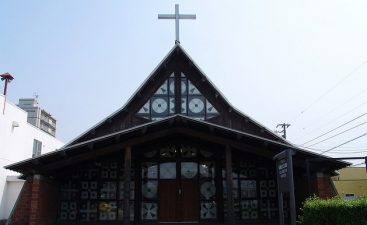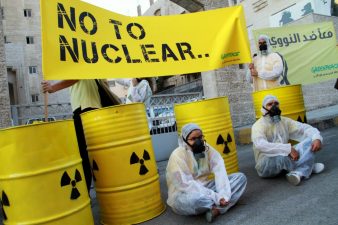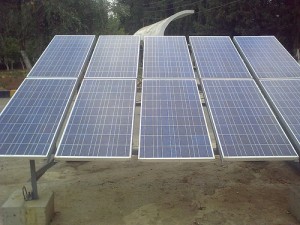 From growing protests in Jordan and Egypt to the first ever approved plant in UAE – we have the latest on nuclear from the region
From growing protests in Jordan and Egypt to the first ever approved plant in UAE – we have the latest on nuclear from the region
Jordan’s nuclear ambitions, which have faced a particularly rocky time over the years, encounters more drawbacks. Not only was the nuclear programme declared ‘hazardous and costly’ by a parliamentary committee last month, there is now a growing wave of protest against the nuclear plant. A petition was delivered to the South Korean embassy in Amman asking the South Korean business consortium tasked with building the nuclear reactor to stop work. Protestors insist that the nuclear reactor jeopardises public safety and ignores international regulation.
The petition was signed by hundreds of representatives of professional organisations, political parties and parliamentarians who are against a nuclear reactor in their community. “We are not an anti-nuclear group; we are a community of 100,000 people that chooses to say no to this project, and will do everything possible to stop it,” the petitioners said in the letter which was sent to The Jordan Times.
The Korean Atomic Energy Research Institute and Daewoo is scheduled to begin construction in December on a 5-megawatt nuclear research reactor in Ramtha. Residents of the northern cities of Ramtha and Sarieh said in the petition that they as “farmers, merchants, engineers, doctors, professors, students, mothers and fathers… have the right to protect our families and community from the hazards of radiation.”
Egyptians Step Up Nuclear Protests
And it’s not just Jordanians stepping up their anti-nuclear protests. In Egypt, environmentalists have intensifying their campaign against a nuclear power plant planned for El-Dabaa. Initial plans for the nuclear power plant were issued by a decree from then-president Hosni Mubarak but following the 1986 Chernobyl disaster, the plans were put on hold. Now they have been given the green light and construction was scheduled to start in January in El-Dabaa in the Matrouh governorate of Egypt.
However, residents and activists have launched a protest campaign against the plant which they say is to be built on illegally confiscated land and destroyed homes. El-Dabaa Mayor Mehanna Abdel Hamid confirmed that in order to build the plant, 350 homes had been demolished and farmed fields has been confiscated. The Jerusalem Post also reported international concerns about Egypt’s lax nuclear security, after the International Atomic Energy Agency confirmed reports that low-level radioactive material had been stolen from a laboratory at El-Dabaa.
UAE Environment Agency Approves Nuclear Plant
In other news, the Abu Dhabi environment agency has approved plans for the UAE’s first nuclear power plant. The ‘no objection’ certificate is the first of several approvals the plant will need and the project is still awaiting a construction license. More worrying than this development is the illusion the country is under about the ‘green’ credentials of nuclear.
Speaking to Reuters, the Emirates Nuclear Energy Corporation chief executive Mohamed Al Hammadi said that “Nuclear energy is one of the ways in which Abu Dhabi is demonstrating its commitment to the environment, as nuclear energy plants emit almost zero carbon emissions during operations. With four nuclear energy plants delivering electricity to the grid by 2020, we will be delivering 5,600 megawatts of low carbon electricity to the national grid,” he said. I have just two words: renewable energy.
: Image via Mohammed Asfour (2011)/Greenpeace Jordan on Facebook.
For more nuclear in the region see:
Greenpeace Raises More Questions Over Jordan’s Nuclear Plans
Jordan Suspends Its Nuclear Plans Amid Controversy
Can Nuclear Power Ever Be Justified for Environmental Reasons?




@Basel Burgan – ‘Confessions of an Economic Hitman’ falls under the category of bad literature; and anyone with any background in economics will tell you that it’s more of a ‘sell a book to get rich’ scheme that many Americans seem to profit of.
The reality is, we (as developing countries) do not have the institutions comparable to developed nations to implement fine statecraft. When you look at the totality of the matter, how many people can manage their credit cards or even loans? Heads of state (or government) are no different; the IMF or World Bank (which is anti-nuclear btw) do have well meaning people, but they often fail to realise that the socio-political structure of developing nations prevents accountability and/or proper management of resources.
In short; we as developed nations lack prowess in state-crafting and our mismanagement of such resources is proof. Do developed nations need us to buy their technology? We are the ones who lack R&D capacity or will; and I do not mean weaponry, I mean, things like efficiency-drivers.
When one wants to evaluate why did UAE sign contracts for 4 Nuclear Power Plants, and plans to build more, one should first read “Confessions of an economic hitman” by John Perkins to get the answer.
You will know why Saudi will follow UAE.